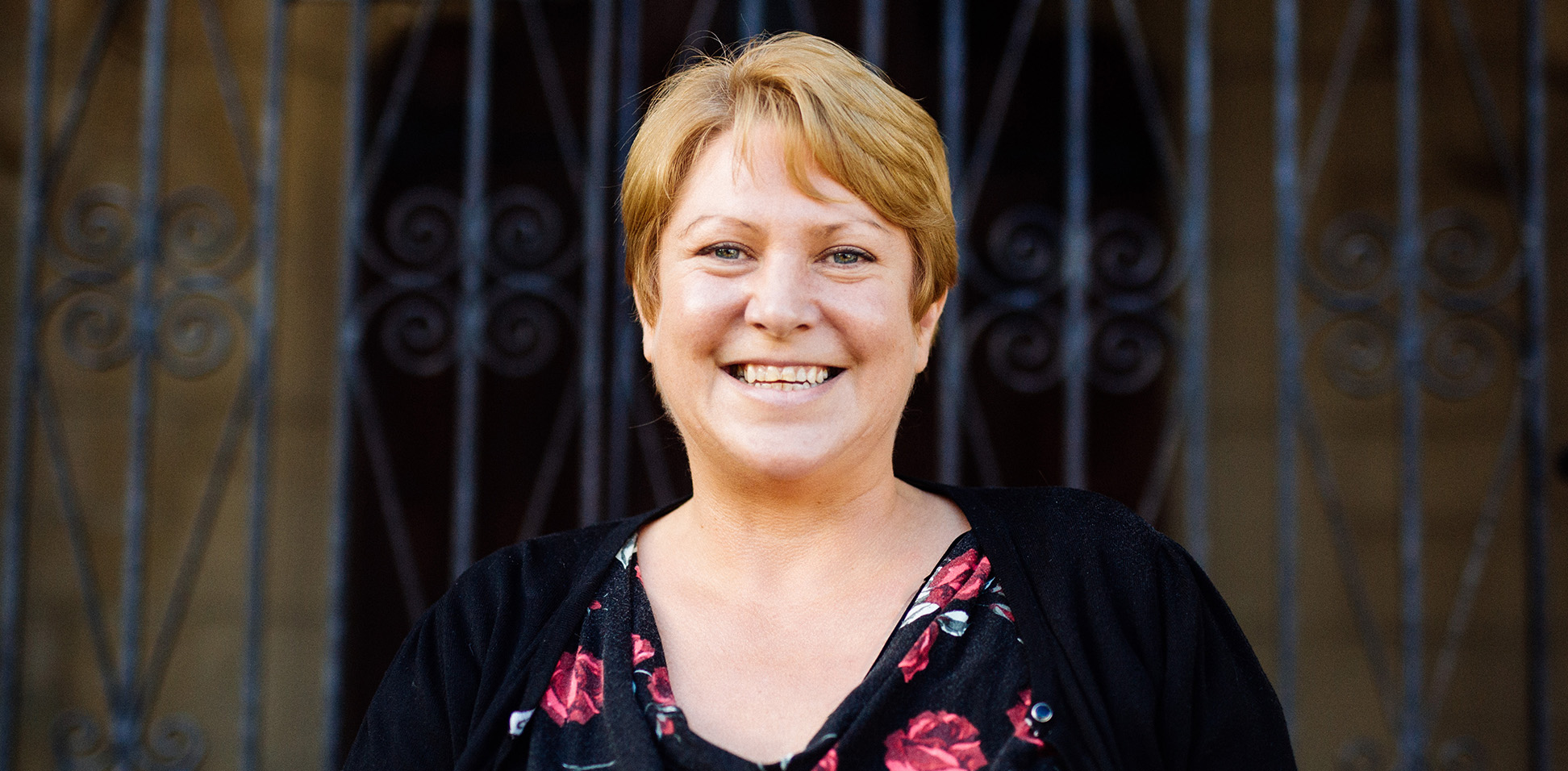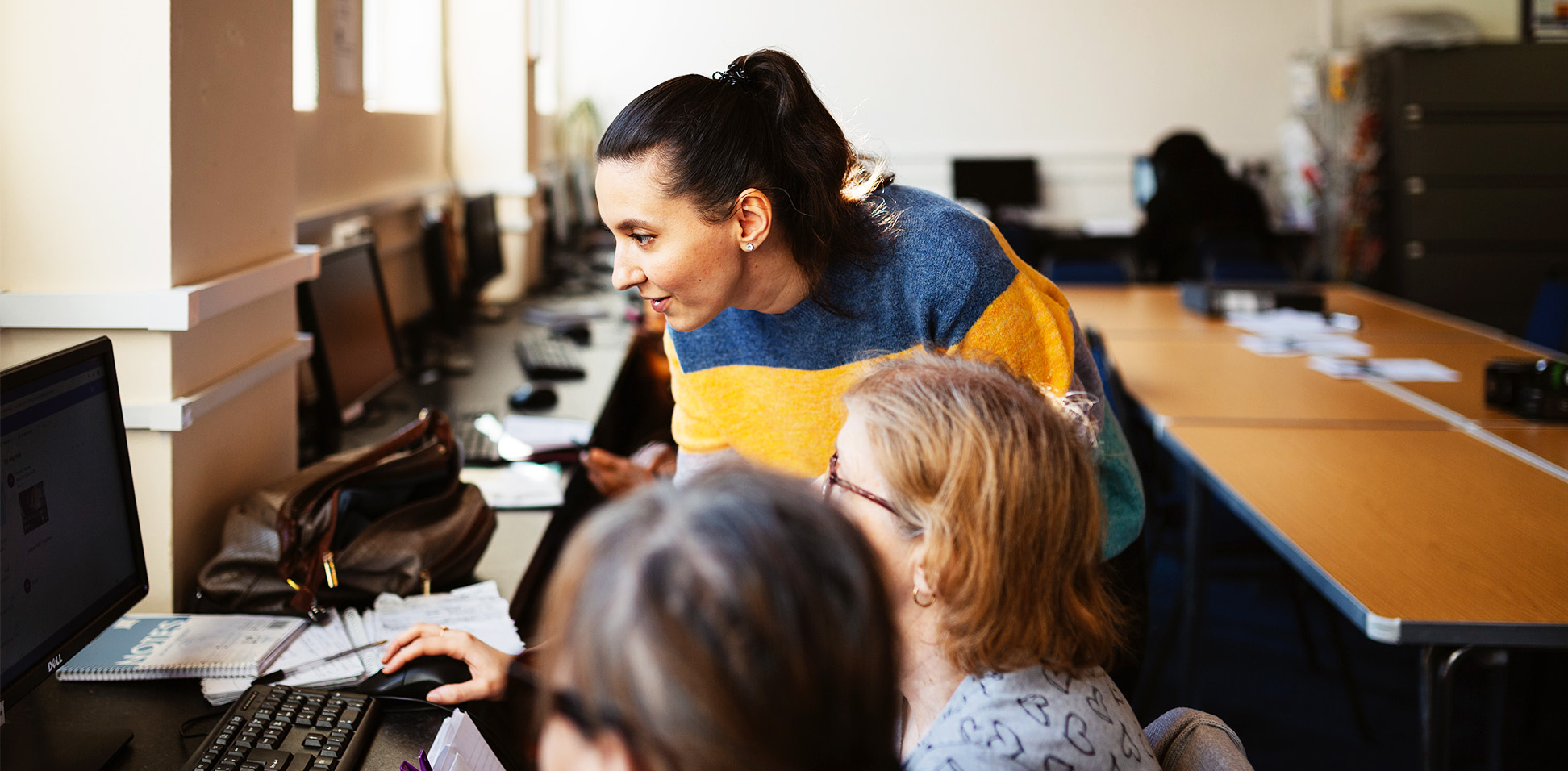House of Lords visit digital inclusion hub Skills Enterprise
Members of the House of Lords have seen first-hand the impact of hyperlocal, digital inclusion support. Good Things' Advocacy Manager, Hannah Whelan, discusses how to create that impact at scale - and meaningfully fix the digital divide across the country.
Having collected the majority of oral and written evidence for their inquiry into ‘Digital exclusion and the cost of living’, members of the House of Lords’ Communications and Digital Committee had one final stop to make – a visit to a Digital Inclusion Hub.
We were proud to facilitate a visit to Skills Enterprise, a Digital Inclusion Hub in East London that has been part of the National Digital Inclusion Network since its founding in 2011.
About Skills Enterprise
A cornerstone in their community, Skills Enterprise has long-provided support to its local residents: from debt management and financial literacy support; housing and benefits advice; health and wellbeing services; to digital inclusion and digital skills training. Data shows that when people are supported to gain basic digital skills and confidence, even if they’re facing one or more barriers related to social exclusion, they can go on to gain employment and raise their self esteem.
Seeing the value of digital inclusion
To help their inquiry come to life, the Lords were given an in-depth overview of Skills Enterprise’s work. Chief Executive Mala Muthu talked about some of the issues that their users’ faced and why she – an individual with lived-experience of poverty and migration, working in a trusted community organisation – was best placed to deliver the services that they needed.
As roundtable discussions proceeded between the Lords and the Hub’s services users, the Committee were able to see first-hand the impact of digital inclusion support on a hyperlocal level. The group outlined their challenges with digital, and how initiatives such as Learn My Way had been so beneficial – learning at their own pace, in an informal and friendly setting.
One attendee spoke about her experiences, describing how she couldn’t afford broadband at home, but how as a single mother, she needs to access the internet to find employment and ensure her weekly shop doesn’t go over budget. She was grateful for Skills Enterprise, where she had gained digital skills through Learn My Way, and had been given a mobile phone and a pre-paid SIM card through the National Device Bank and National Databank.
Skills Enterprise is one of the 2000 or so Digital Inclusion Hubs that make up the National Digital Inclusion Network, enabling free internet data, free devices, and free digital skills and confidence support to be available across the UK.
We know that for the digital divide to be truly tackled, we must enable coordinated, cross-sector and collaborative interventions for every corner of the nation. The Good Things Foundation service delivery model tackles the pillars of digital exclusion – data, devices and skills. Our action is both local, delivered by hyperlocal experts like Mala who are ingrained in their communities; and national – removing the inefficiencies of re-inventing the wheel. Thanks to our Network approach, Good Things Foundation is able to provide nationally available quality services that work for all.
Good Things' Advocacy Manager, Hannah Whelan, said:
"This visit gave Members of the Lords Committee the opportunity to experience how powerful local provision can be and how digital inclusion doesn’t just mean getting a SIM card - it means getting a job, going to the Doctor, staying connected to loved ones, and being able to budget. It means a healthier, happier life. We know that without further intervention, 5.8 million people are estimated to remain digitally excluded by the end of 2032 (Cebr 2022). We trust that the findings into this inquiry will highlight the importance of ending digital exclusion, not just through the cost of living crisis, but for good."


